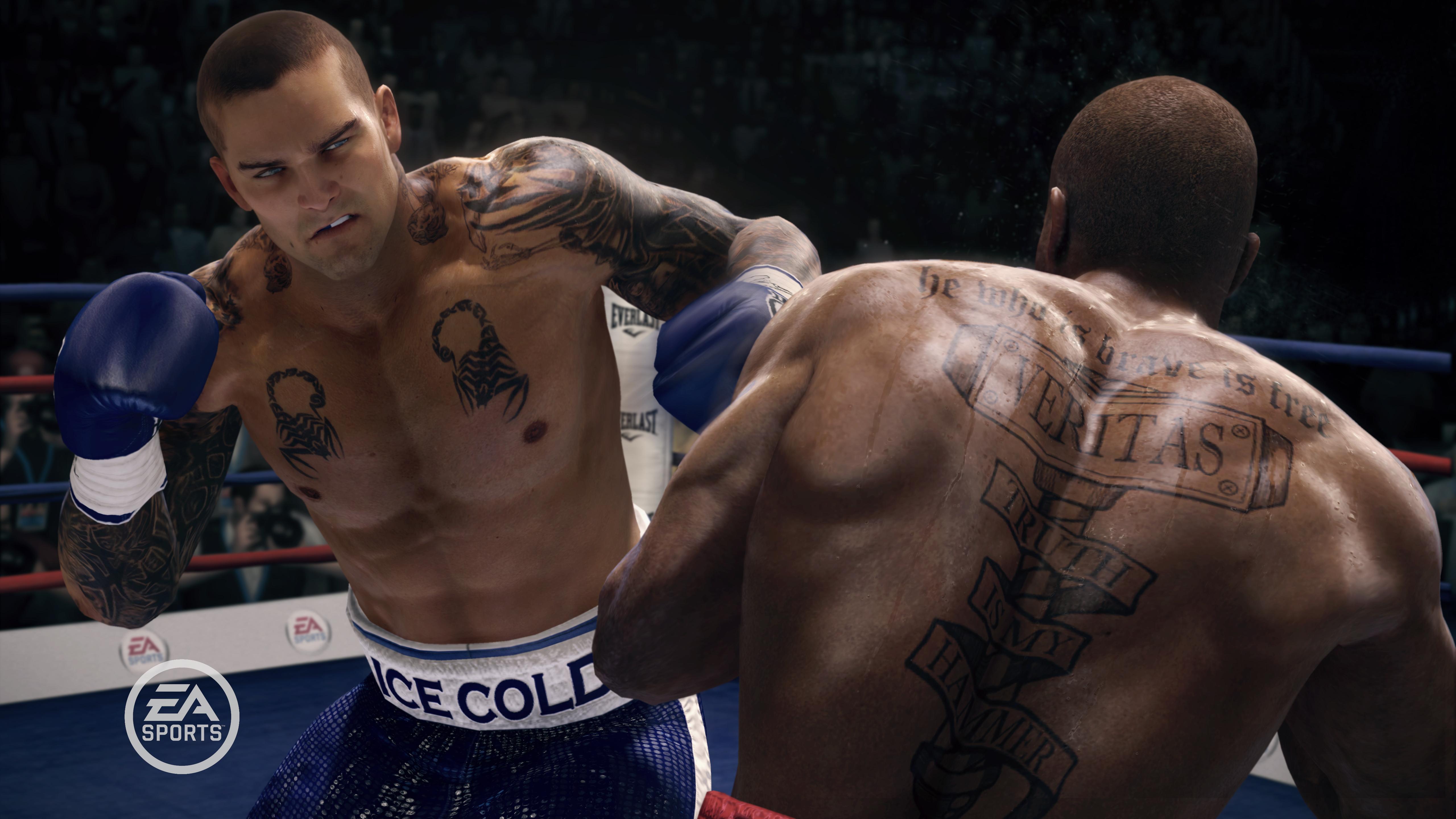Why you can trust GamesRadar+
Champion Mode, then, is something of an appetizer to the full Classic Mode, which has all the usual created player options from last year - including the option to use a camera to import your face, and the lengthy process is surprisingly worthwhile. What has changed this time around is the way experience points for training matches are done. No longer are you hampered by poor training rounds, and should players want it, they can simply opt to do a single minigame to boost their stats.
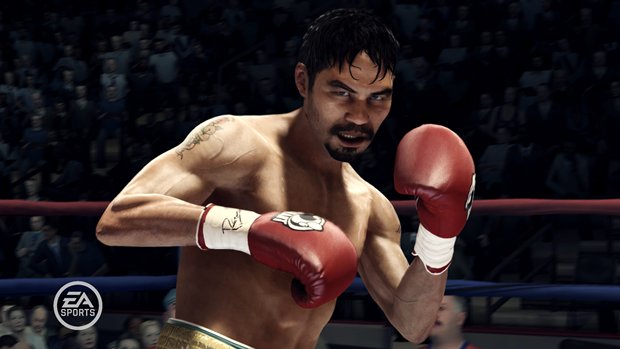
Instead, particular stats are boosted by paying money to train in specific cities' gyms, some of them bestowing better overall perks for stats than your normal, free operations back home. Better still, training enough will unlock abilities and stat boosts (yes, we're effectively talking about perks here), and individual minigame performance is tracked and uploaded online, so high scores can be challenged (with a little notification window when you hop online so you can challenge back).
The whole training process is encapsulated by the overall fight schedule. You can pick when your next bout is and juggle things like sponsor requirements, training and recovery during the lead-up to the fight itself, but there's a constant balancing act between managing overall fighter health and their stats in the limited window between fights since actions gobble up entire weeks at a time. Bonus objectives add an extra layer of challenge, but they can also mean better rewards that add to your overall bankroll, which in turn fuels better results in better gyms and the cycle just keeps on repeating.
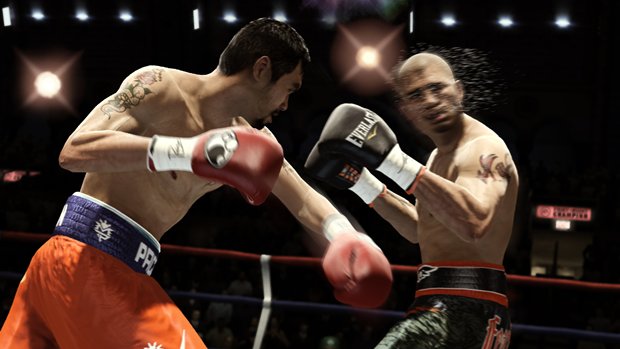
Far more staggering than the surprising effectiveness of the training/fight schedule, though, was seeing what a fresh-from-the-amateurs fighter does when actually going for a proper fight win. You win by losing. A lot - mostly because your player's stats aren't going to be amazing, and if you come off playing with what is essentially a monster in the ring like Andre Bishop, it's even more jarring to not have that power. But losses are important: they help you get to know your player and stat boosts have that much more impact. Given the length that the Legacy Mode could last (especially if you spend the time to tweak legends' ranks to get them into the game with you), it's actually a rather important lesson.
Of course, if all this offline play isn't really your thing, you can take your fighter online for bouts that help continue his improvement. And while it's great that you can square off against other people, the real change to this year's game is undoubtedly in the expansion of options for playing with friends. Online Gyms aren't just a place for "clans" to duke it out against each other - you can fight with Gym buddies, helping to establish a tier system (though you obviously can't farm XP this way) for when you opt in for seasons and tourneys - or better still when you develop a rivalry with the other gym.
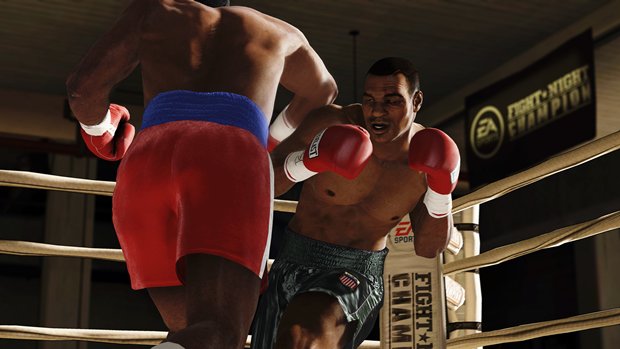
The Gyms allow for specific match types, too. What players can be used (though actual pros aren't used in gyms, just the guys you've made), if abilities and boosts are allowed for purists that just want to slug it out based on stats, and more. Rivals get to call each other out every two weeks and winning a two-day tourney against them boosts your overall Gym ranking worldwide.
The series made the jump to 60 frames a second last year, pulling the camera back and cutting down on a bit of the up-close detail in the fighters themselves. That's still the case, which means those awesome rippling slow-mo blows from Round 3 aren't really as visceral this time around, but there have been some nice upgrades to the way cloth physics work - particularly the pre-fight, satiny robes the fighters use. In-match, things are almost always smooth, and things like cuts and swelling can become readily apparent in longer bouts (blood will even drip off the players’ faces to run down their chests and stain shorts/the ring), but what was most impressive was the fluidity between punches. EA says they've added twice the number of animations for things like hookercuts to help with the transitions and tweening, and it shows.
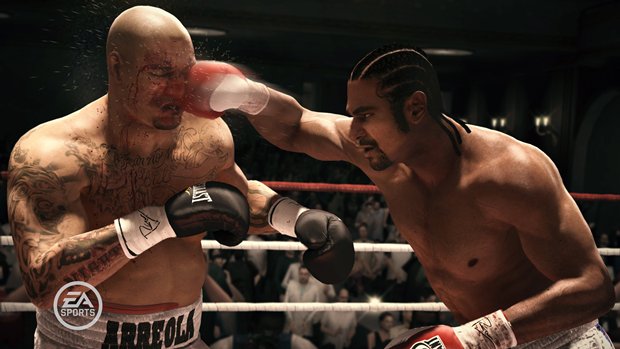
Aurally, things sound fantastic, too, especially the rather dramatic flares that kick up when your boxer is dangerously close to going down or are closing in on a stunned opponent. These have a fantastic effect during the Champion Mode moments, too, adding quite a bit of punch to the situation if you've really gotten invested in Bishop's story. Things like hisses and whiffs and taps and full-on contact is all met with clear, meaty sound effects, naturally, but the crowd getting into things really does help add tension to the fight. Big blows are met with the proper reaction, and even the commentary from Teddy Atlas and Joe Tessitore does a good job of matching the intensity of the fight, even if a lot of the early comments are almost instantly recycled.
Fight Night Champion isn't going to reverse people's opinions of the shift in gameplay style that started with Round 4. It may help them warm up to things a little by providing more context and a story-driven backdrop, but it's still going to be a divisive decision. As someone who gave up early on Round 4, we have to admit that we've finally come around. There's just so much stuff to do in Champion that we feel the little break we gave ourselves (not to mention having to play through the game for this review) has helped rekindle some of that love affair with one of the few sports games we can hold our own in with friends. If you too can put aside the longing for the way things were and adapt to the quicker pacing, shift toward movement and countering and occasionally imprecise use of the right stick, you'll find a fighter that has more than enough content to justify that investment. If not, well... there's always the hope that if Fight Night Round 5 ever happens, it could be like it was.
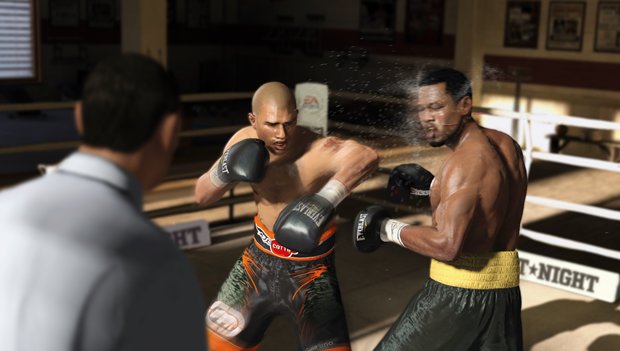
One thing's for sure: the move to an M rated game, if nothing else, provided a storyline that felt surprisingly entertaining. Fight Night Champion is absolutely worth a look, even if you were burned by Round 4.
Feb 23, 2011
More info
| Genre | Sports |
| Franchise name | Fight Night |
| UK franchise name | Fight Night |
| Platform | "iPhone","Xbox 360","PS3" |
| US censor rating | "Mature","Mature","Mature" |
| UK censor rating | "16+","16+","16+" |
| Alternative names | "Fight Night: Champion" |
| Release date | 1 January 1970 (US), 1 January 1970 (UK) |
